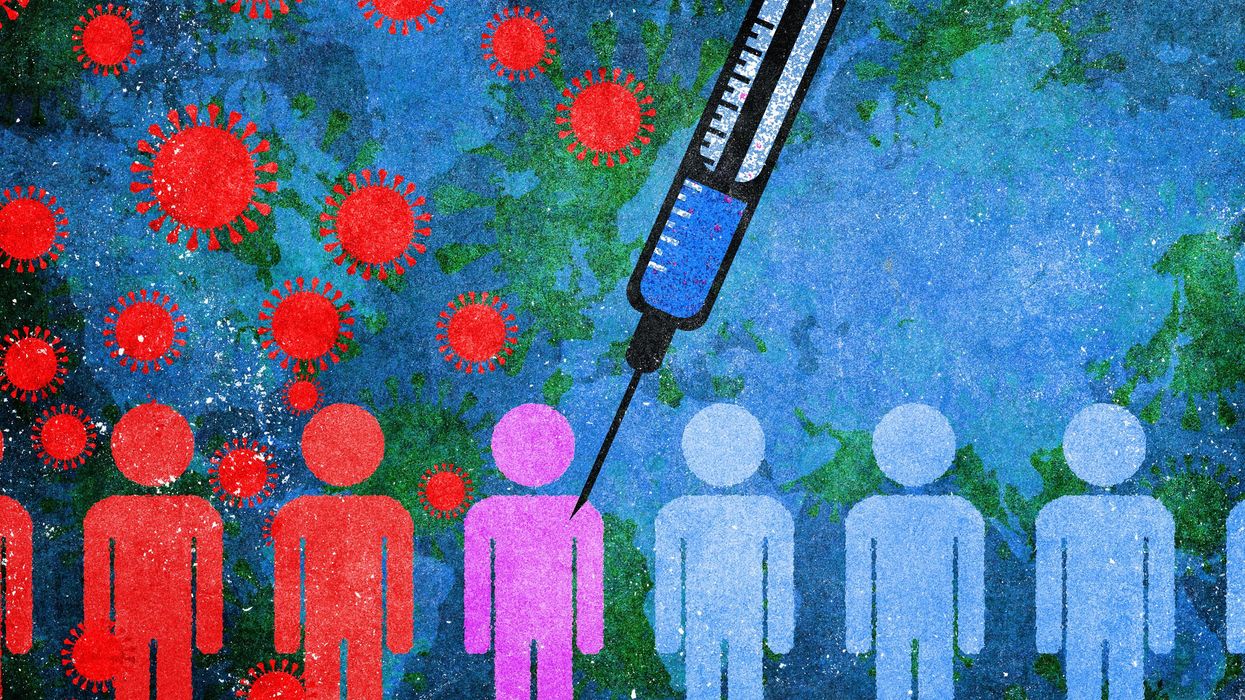Pearl is a clinical professor of plastic surgery at the Stanford University School of Medicine and is on the faculty of the Stanford Graduate School of Business. He is a former CEO of The Permanente Medical Group.
Most leading immunologists predict Covid-19 will someday become an endemic, a persistent but manageable threat on par with seasonal flu, conceivably by the end of 2022.
That would constitute quite the turnaround from today. The coronavirus remains a leading cause of death in the United States with reported cases and fatalities nearly the same this holiday season as last. All things considered, the possibility of Covid-19 becoming endemic (just another American annoyance) should be cause for great celebration.
So, why doesn’t the pending transition from pandemic to endemic feel like great news?
When wins feel like losses
Part of the answer involves the news media, itself: “That SARS-CoV-2 could be with us forever is a dark thought,” read The New York Times on the same day that Health magazine asked, “When will it be over?” and answered, “Unfortunately ... never.”
Why so glum? You see, early in the pandemic, headlines mirrored what experts thought to be true: that the pandemic would end soon through herd immunity. All we needed was 70 percent of the U.S. population to become vaccinated or recover from Covid-19. And as recently as summer 2021, that destination seemed reachable. We thought we had Covid-19 on the ropes, ready to deal a clean knockout blow. Thus, our nation’s collective hope, glimmering one moment and gone the next, helps explain why the news of endemicity now feels so somber.
A healthy dose of perspective
Humans have a natural tendency to experience losses, even perceived ones, with far more intensity than they experience gains. In that context, it’s understandable that the “endemic” label smacks of failure rather than victory.
After all, Americans aren’t comparing their feelings about a future of endemic Covid-19 to their wildest fears back in March 2020. Instead, the reference point — that thing which lent hope before it was snatched away — is more recent. For some, it might have been a Wall Street Journal headline from February 2021: “ We’ll Have Herd Immunity by April.” Or the joys of May when even the most prudent among us were going maskless and gearing up for “ Hot Vax Summer.” Or perhaps some believed President Biden in June when he said, “We’re closer than ever to declaring our independence from a deadly virus.”
As the saying goes, unrealistic expectations are premeditated resentments. Now here we are, eyeing the possibility of endemic Covid with dismay and disappointment rather than with unbridled optimism that, someday, we’ll have wrestled this fearsome foe to a draw.
What our nation’s collective mental state needs now is a healthy dose of perspective. For that, here is a trio of useful reminders:
1. We’d never reach endemicity without an effective vaccine. It’s difficult now to appreciate how ominous the Covid-19 forecast looked for most of 2020. In June that year, the U.S. government placed an $18 billion bet on a public health moonshot called Operation Warp Speed with hopes that scientists would develop and deliver 300 million safe and effective vaccine doses by the new year.
Success was far from a foregone conclusion. Prior to the Covid-19 vaccines, the fastest one had ever been developed was four years (mumps). Nearly all took five years or much longer. Without incredible luck and even more incredible science, we would still be years away from a safe and effective vaccine.
2. Regardless of the variant, the death count will drop with endemicity. In our present reality, the Delta variant is causing more than 1,000 daily Covid-19 deaths (based on a seven-day moving average). That will not be so when our nation reaches endemicity. According to the White House chief medical adviser, Dr. Anthony Fauci, Americans living in an endemic world “will still get infected” and “might still get hospitalized,” but the rates of new cases and hospitalizations will be so low that Covid-19 will not negatively impact our society, economy or daily life.
3. Endemic Covid-19 will be no worse than seasonal flu. Through a combination of increased vaccinations, booster shots and new antiviral treatments, the likelihood of dying from endemic Covid-19 will be 90 percent to 95 percent lower than in early 2020. That reflects a mortality rate somewhere between 0.05 percent and 0.1 percent, similar to what Americans experience with the flu.
Ask yourself: If we hoped that Covid-19 would be no more dangerous than the flu at the start of the pandemic, shouldn’t we celebrate that outcome when it actually happens?
Of course, Covid-19 won’t be exactly like the flu when endemic. For instance, Covid-19 cases won’t completely disappear each summer and return the following winter like the flu. Instead, the variation will be more geographic and locally manageable. But, relative to risk, the two diseases will be equivalent, which is cause for celebration.
It is easy to understand the difficulty Americans have embracing endemic Covid-19. Regardless of the opponent, we find it hard to accept a draw when victory once seemed imminent. But make no mistake, endemicity will be a triumph for our nation. Whether it takes a year or more, don’t mourn the occasion when it comes. Celebrate the accomplishment.




















Trump & Hegseth gave Mark Kelly a huge 2028 gift